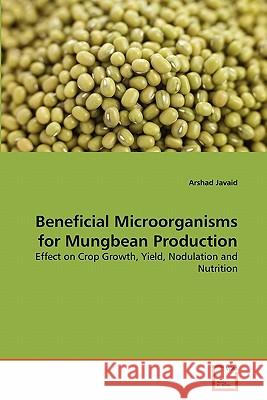Beneficial Microorganisms for Mungbean Production » książka
Beneficial Microorganisms for Mungbean Production
ISBN-13: 9783639314380 / Angielski / Miękka / 2010 / 212 str.
Although chemical fertilizers are effective in increasing the crop yield, however, these may cause some problems such as soil structure deterioration, ground water pollution and high nitrates in vegetables. Their excessive use has contributed to reduction in soil organic matter content, with a consequent reduction in the quality of agricultural soils. There is a strong conviction among researchers to probe into alternatives of chemical based agriculture. In view of its economic, social and environmental benefits, there is a worldwide trend towards the promotion of organic agriculture, which tends to eliminate the use of synthetic fertilizers, pesticides and genetically modified organisms. The present study was, therefore, carried out to investigate the effect of different types of beneficial microorganisms viz. nitrogen fixing Bradyrhizobium japonicum, symbiotic arbuscular mycorrhizal fungi, and EM (Effective Microorganisms), a mixture of coexisting beneficial microorganisms, on growth, yield, nodulation and nutrition of mungbean in different soil amendment systems. This book is particularly beneficial for those who are involved in organic farming.











